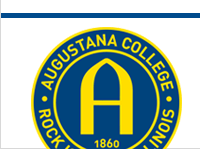Course
RELG-356: Business Ethics
Document Type
Student Paper
Publication Date
2020
Disciplines
Business Analytics | Business and Corporate Communications | Business Intelligence | Business Law, Public Responsibility, and Ethics | Communication Technology and New Media | Political Economy | Social Influence and Political Communication | Social Media
Description, Abstract, or Artist's Statement
Consumers need to understand the risks and consequences of sharing their lives with the world. For data analysts, even if you can create and implement a model, should you? This research paper discusses Cambridge Analytica’s methods using predictive analytics and Facebook to influence the 2016 US Presidential Election. Through examining the firm as a whole, key people involved in the scandal, methods of data collection, and Facebook’s role, the ethical boundaries of big data, predictive analytics, and data privacy are analyzed. Three perspectives were discussed in regards to ethical disparity: Cambridge Analytica, Facebook, and the consumers. Overall, this research exposes that while Cambridge Analytica and Facebook take direct blame, this scandal should serve as a “wake-up call” for consumers.
Augustana Digital Commons Citation
Boerboom, Carissa. "Cambridge Analytica: The Scandal on Data Privacy" (2020). Augustana Center for the Study of Ethics Essay Contest.
https://digitalcommons.augustana.edu/ethicscontest/18
Creative Commons License

This work is licensed under a Creative Commons Attribution 4.0 International License.
Included in
Business Analytics Commons, Business and Corporate Communications Commons, Business Intelligence Commons, Business Law, Public Responsibility, and Ethics Commons, Communication Technology and New Media Commons, Political Economy Commons, Social Influence and Political Communication Commons, Social Media Commons


Comments
1st Place Winner, 2020